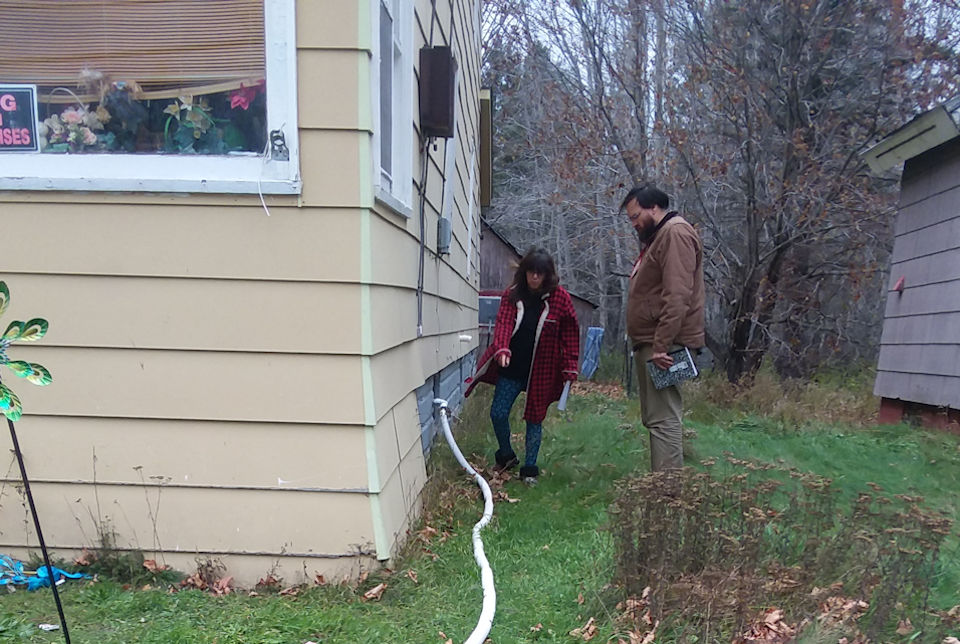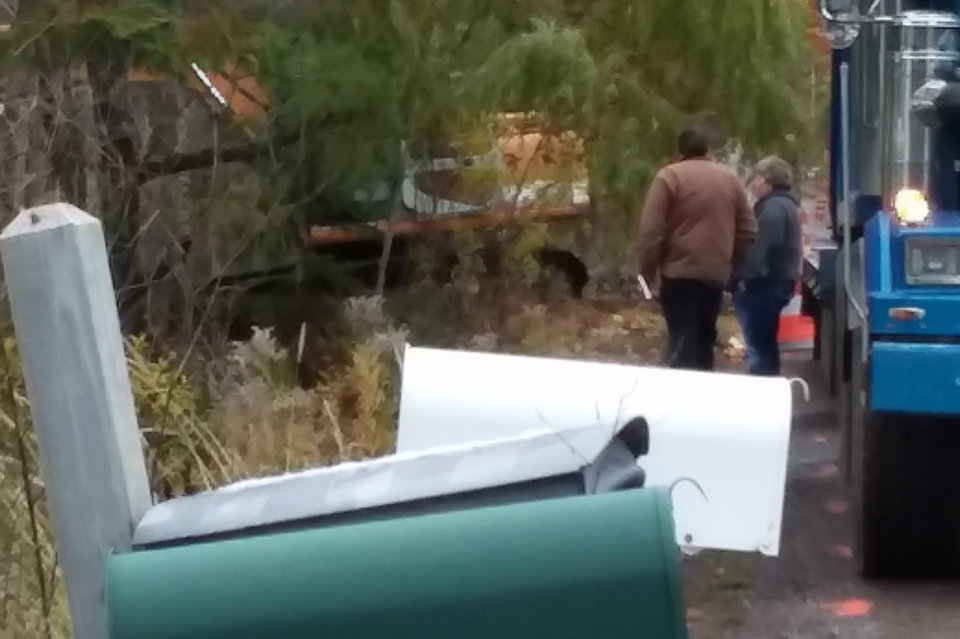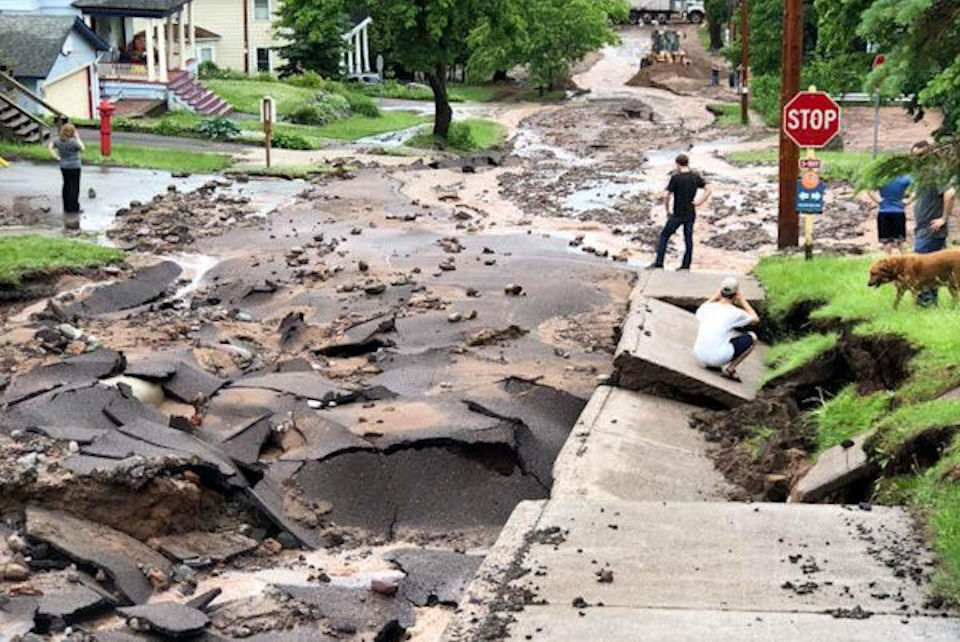The fourth in a series, “UMCOR in Michigan,” describes the work being done in Copper Country by two Case Managers serving those left behind from the epic Father’s Day Flood.
KAY DEMOSS
Senior Content Editor
For them, it’s a matter of neighbor helping neighbor. Marci Vivian and Dennis Leopold are long-time residents of Copper Country in northern Michigan. They are also Case Managers for the United Methodist Committee on Relief. “It’s pretty amazing what UMCOR does,” Dennis says. “But nobody around here had heard of UMCOR because we had been unaffected by disaster.”
That changed on Father’s Day 2018. Six inches of rain overnight Saturday night caused flash-flooding that washed out roads, filled basements with water and rock, and opened 60 sinkholes across the Keweenaw Peninsula.
The state and community rallied to relieve residents in the early weeks and months. The Portage Health Foundation took the lead, helping 460 families. Meanwhile, The Michigan Conference of The United Methodist Church received a grant from UMCOR. Those funds allowed the Flood Recovery Project – Copper Country to open in October.

According to the Rev. Paul Perez the UMCOR Case Managers will pick up where the Portage Health Foundation left off. Perez is the Associate Director of Mission and Ministry for The Michigan Conference. “Marci and Dennis will follow up with about 150 residents who have self-identified as in need of recovery assistance,” Perez says. They will also reach out to additional residents, working in partnership with the Keweenaw Foundation and Good Shepherd Evangelical Lutheran Church. The Foundation and Good Shepherd have funds for use in direct assistance.
Marci and Dennis received spreadsheets and contacts from the first responders. Those inform their work. A typical day involves phone calls. Perhaps the person whose name was on the call list is okay, but they know of neighbors who still suffer hardship from the summer storm. After the flood, “People looked around and saw that there were people worse off so they didn’t seek help,” Dennis reports. Those persons who stepped aside so that their neighbors could be cared for are now among those the Case Managers are picking up in their calling. Dennis describes the storm-ravaged area as, “many towns but one community.”
After phone interviews come home visits for further assessment of need. Homeowners are connected with resources. Needs include mold abatement, basement muck-out, as well as new appliances. “We’re looking for people without furnaces, hot water heaters, as well as homes that have not been cleaned and sanitized yet,” Marci said.
“Everyone has a unique set of circumstances. The need from household to household can vary greatly, and funds will be distributed accordingly,” Dennis states. Some residents were unable to complete the application process for foundation assistance earlier in the year. They were among the “left behind” who are now being reached by this UMCOR-funded effort.
Based on their first 150 calls, and how many people registered for aid, the pair estimate they’ll be overseeing about 80 households for disaster case management. Case Managers connect the residents-in-need to appropriate organizations, nonprofits, counselors and tradesmen and walk them through their full recovery process.
Dennis explains that needs have stretched the local professionals. “We spend a lot of time talking with contractors, who are tied up and trying to make space for us,” he says. “They shoehorn our requests in.”
“This is a commitment to holistically getting people’s lives back to a place of normalcy,” says Perez. “The work of disaster case management is not only material, but it’s psychological, physical, emotional, and spiritual well-being.”

The work Dennis and Marci do meets those various needs. While a lot of work had been done in the five months since the rains came, Marci and Dennis continue to seek out ways to help the more vulnerable in the community. “Some we phone may be talking about the flood for the first time,” Dennis notes. Marci observes, “We talk to a lot of people who are very emotional and very grateful. They felt so overwhelmed.” Dennis adds, “Again, some of them are the outliers who knew there were others with greater needs even though they were unable to meet their own needs. Those who denied assistance for themselves in June are thankful help is still available.”
“We can get through what we need to get through right now,” Marci says. “We need to put the focus on the future and keep the story out there.” There’s already two feet of snow on the ground where they sit in their office in Hancock with plenty more winter ahead. They anticipate challenges come spring. “The topography and hydrology changed after the June rain,” Dennis explains. “There is a lot of concern about the spring thaw when 250-300 inches of snow melt, and we have to contend with that.”
“The flood was unique to our backdoors. We are used to blizzards, and we pull together. The flood affected what will happen in the spring run-off,” Marci continues. “More funding will be needed until we can get back to a new normal.” Such is the nature of case management. “Our case managers assist from the beginning of their client’s case to the close of it to aid and empower that person to work toward their long-term recovery,” Paul Perez concludes.
UMCOR works through partnership. The Case Managers in the U.P. are in regular contact with two Case Managers still at work in Midland doing similar flood recovery. “They continue to be part of our team,” Dennis says. Marci and Dennis also relate to the Copper Country Team Disaster Recovery Group comprised of local churches, community leaders, non-profits and government agencies.
The two are based out of the D&N Bank building in Hancock, Room 402, and can be reached by phone (906) 231-6856 or email [email protected] and [email protected].
Last Updated on November 1, 2023


